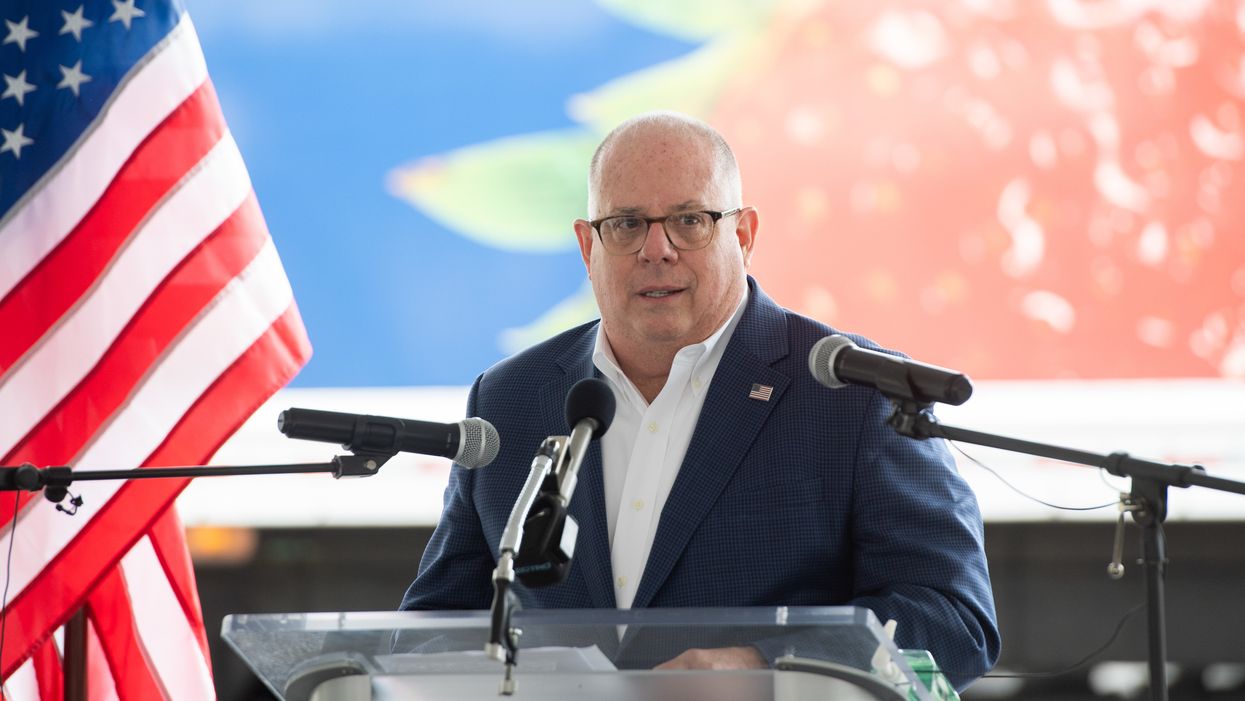Gov. Larry Hogan's decision to move forward with a "normal" general election in Maryland will come at a steep cost to the state, especially if the federal government doesn't lend a hand like it did for the primary.
The State Board of Elections estimated Tuesday that the governor's plan will cost almost $21 million. The amount is not entirely in the state budget because much of the money would go to print and pay postage on a surge of absentee vote applications, ballots and return envelopes — plus cleaning supplies and protective gear at 1,600 polling places. None of that was expected before the coronavirus pandemic.
Democrats, local election officials and voting rights advocates have all raised concerns that the plan by Hogan, the Republican governor of a lopsidedly Democratic state, is setting Maryland up for failure. They worry it costs too much, could confuse voters and will stretch election workers too thin. But Hogan, who's already eying a run for president in 2024, has stood firm despite the pushback, saying his plan will give voters options.
Elections in Maryland get outsized attention, and can become a template for shaping policy, because so many federal officials and members of the media live in the suburbs adjacent to Washington.
And while not as chaotic as some primaries this year, what was designed as a mostly vote-by-mail set of nominating contests in June was not without problems. Some voters received the wrong absentee ballot, or not in the language requested. Others didn't get a mail ballot at all. These issues caused many more to vote in person than expected, resulting in hours-long wait times at polling locations across the state.
Because of the hiccups last month, Hogan decided to return to a more traditional process for November. While mail-in voting will still be encouraged, more early and in-person voting will also be available. Instead of what he decided for the Covid-19-delayed primary — when all 4 million voters were sent an absentee ballot — Hogan instructed election officials to send only an application for a mail ballot.
But the nine Democratic members of Maryland's congressional delegation worry this change presents its own problem. "This two-step process will likely confuse many voters who rightly expect — given their recent experience with the June primary — that they will be mailed ballots proactively," the lawmakers wrote Hogan two weeks ago.
And then there's the cost to consider. Sending these applications, and then the requested mail ballots, while also keeping early and in-person voting at full capacity is not cheap. In April, the state got the job done with its $7.5 million share of election funding included in a coronavirus relief package passed by Congress. Additional federal election assistance is far from guaranteed as negotiations between the Trump administration and congressional leaders got started this week over the final economic rescue package before the election.
Hogan seems determined to move forward, defending his plan Monday on ABC's "The View."
"We're encouraging to vote by mail. If you don't vote by mail, we have early voting," he said. "And then on Election Day, we're actually going to have the polls open, in case we have the problem we had in the primary," where some people weren't able to mail-in their ballots.
All those options are essentially asking local election boards to conduct two separate elections, six county executives and the mayor of Baltimore told Hogan in a letter last week. "This is a herculean task that not only keeps local election boards from building on the success and lessons learned in the vote-by-mail primary election, but sets up a course for failure," the officials wrote.




















Trump & Hegseth gave Mark Kelly a huge 2028 gift